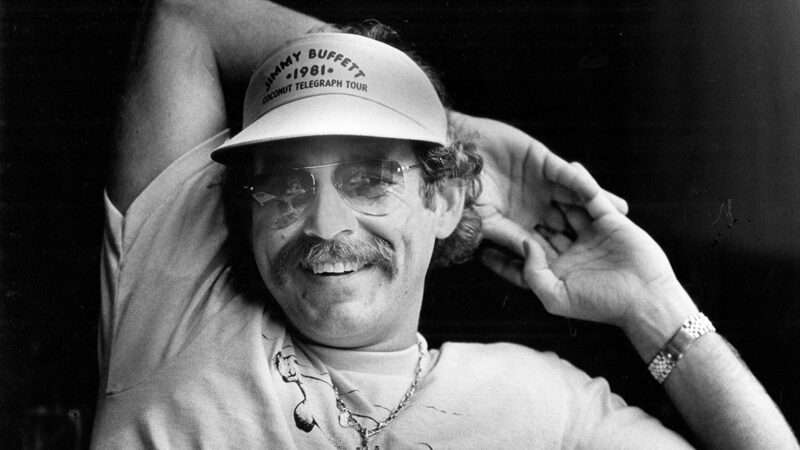
Singer/songwriter/entrepreneur Jimmy Buffett, who died of complications of skin cancer at age 76 in September 2023, seemed like a representative Florida Man. He embraced a popular image of louche, loose, canvas-flapping, soused insouciance, like the state he helped make iconic. But he was always, perhaps deliberately, misunderstood, with a complicated world of artistic depth and business productivity occluded by a reputation for hedonistic goofiness.
Buffett's fortunes grew even faster than the state he exemplified. He made Forbes' billionaire list in 2023. Meanwhile, the state's gross domestic product (GDP) has grown about 40 percent in the past couple of decades, its unemployment rate of 2.8 percent is lower than the nation's as a whole, and droves of people have chosen the Florida Man life since 2020. Like Buffett's wealth, Florida's economy is diverse, not reducible to a cliché of tourism: Education and health services; professional and business services; and trade, transportation, and utilities services all employ more Floridians than do the leisure and hospitality industries. The state's nominal GDP has it richer than all but 15 nations on Earth.
Both singer and his adopted state (like the majority of Floridians, Buffett was born elsewhere—Mississippi in his case, moving to Key West in 1972) flourished healthily behind a reputational vibe of lawbreaking, madcap, ego-driven whim and pleasure seeking. He had a hand in hotels, casinos, restaurants, liquor, packaged foods, apparel, cruises, and even retirement communities. That sort of thing was where a big chunk of his money came from, though he did sell over 20 million albums and could move over 4 million concert tickets over the course of a decade on a relaxed touring schedule of three shows a week for a handful of months a year. He was also one of the fewer than 10 authors to top the New York Times bestseller list with both fiction and nonfiction.
Buffett's most famous song, the linchpin of his musical and business empire, was 1977's "Margaritaville." The tune was the foundation and namesake of a wildly successful drink and restaurant brand, one that grossed more than $2 billion last year, that implicitly celebrated the simple joys of overconsumption of tequila-based sugary mixed drinks.
Despite what Buffett and his fans made of it, the song is a well-observed writerly exploration of the dim, sad realities of drinking oneself into a stupor, filled with minor injuries, regrettable tattoos, and an internalized sense of failure that even the tequila cannot dissolve. Buffett later had hits with more obviously dimwitted celebratory alcoholic anthems such as "It's Five O'Clock Somewhere" (tellingly, Buffett didn't write that one), but the strong first decade of his work, on which his reputation and his active body of performed songs largely depended, were almost never uncomplicatedly escapist.
Buffett's portraits of beach life always had a sad or tawdry edge. There were losers shoplifting sardines from a minimart or imprisoned for incompetent armed robberies. There were portraits of dying Florida small towns, women with melancholic pasts, gringos in South or Central America living in tense time-wasting mutual mistrust with the natives, murders in Cuban bars, aging smugglers with a glumly complex sense of their role in the world, and an acutely observed recognition that the edgy, small-scale outlaw life was one filled with despairing complications, not something to be gleefully woo-hooed about.
Like any smart entrepreneur, Buffett realized that what the consumer thought of him was ultimately more important than what he was. His writerly pride never prompted him to push back against the idea that his work stood for mere "island escapism." With fame, Buffett became a serious part of the American scene, a pal to such giants of politics, finance, and media as Bill Clinton, Warren Buffett (no relation), and Maureen Dowd.
I have been a Buffett fan since I was young, thanks to my dad, who was running bars and liquor stores in Florida in the mid- to late 1970s. My father had very little of the pirate rogue in him. But thanks to the peaceful mutual confluence of interests that free markets reward, he had to understand those types, as they were a big part of his customer base. Thus, an eight-track of Buffett's double live LP You Had to Be There was played daily in his car. I am grateful I was able to tell Buffett to his face how much his writing meant to me and my dad, shortly after he posed for a photo with a circus-y performance troupe I was part of at 2009's Bonnaroo Music and Arts Festival (during which I rubbed his bald head for luck). "I like you circus folk," he told us—but my heartfelt moment with him came to a sudden halt when one of our clowns began humping Buffett's leg. The line between fun and nuisance was, as Buffett the songwriter understood, always thin.
Buffett is gone, and the Key West and Florida he portrayed were always just glimpses, broadly drawn portraits, myths. But that spirit of outlawry, pleasure seeking, and often pigheaded pursuit of even the self's most misguided and potentially destructive impulses underlies every amused or sneering media reference to that national weirdo scapegoat, Florida Man. That element is real—but through it, both Buffett and the state he stood for grew and flourished.
The post Jimmy Buffett, Bard of the Florida Man appeared first on Reason.com.







